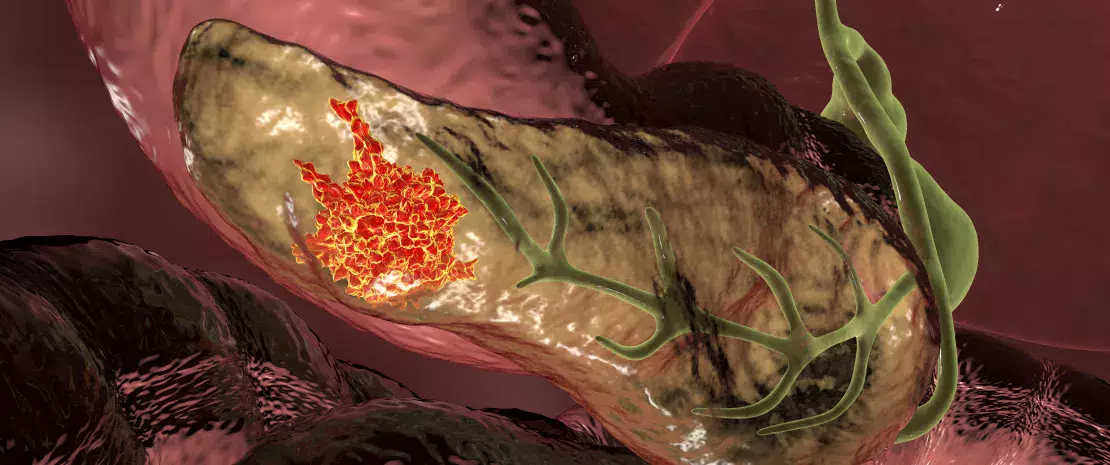Pancreatic cancer: the cystic microbiome under suspicion
According to a Swedish study, the pancreatic microbiome could have an inflammatory potential and the growth of oral bacteria in pancreatic cystic lesions could be used as a predictive tool for progression to malignancy.
Lay public section
Find here your dedicated section
Sources
This article is based on scientific information

About this article
Thanks to recent improvements in medical imaging, lesions caused by pancreatic cystic neoplasms are detected more and more often. Among them, intraductal papillary mucinous neoplasms (IPNMs) of the pancreas, which can progress to pancreatic cancer, are the most common. The pancreatic microbiota could be involved in many ways in the development of these lesions: 1) cancerous pancreatic tissue is richer in bacteria; 2) bacteria from the Fusobacterium species are associated with a poor prognostic; 3) intracystic bacteria could metabolize gemcitabine, thus reducing therapeutic effects of this anticancer drug.
Characterizing the cystic microbiome
A retrospective study has previously tried to characterize the microbiome found in different cysts, but showed no significant results, maybe because the methodology used could have induced contamination (samples were collected through the mouth and esophagus). To resolve the uncertainty, a prospective study was recently carried out, based on samples of cystic liquid and plasma collected during pancreatic resection in 105 patients at the Karolinska hospital in Sweden: 21 non-IPMN cysts, 57 IPMN cysts and 27 malignant IPMN cysts were diagnosed post hoc.
More bacteria and inflammation
Results show that patients diagnosed as carriers of an IPMN (whether it is malignant or not) have higher amounts of bacterial DNA and an increased level of IL-1β (pro-inflammatory interleukin) in the cystic liquid, compared to non-carriers. This correlation is not found in plasma, thus suggesting a local process limited to the cyst. Despite a strong individual variability of the intracystic microbiota composition, the study underlines that cysts occur simultaneously and show increased levels of some oral bacteria, such as Fusobacterium nucleatum and Granulicatella adiacens. Finally, clinical history indicates a strong presence of intracystic bacterial DNA associated, among others, to previous endoscopic lesions related to invasive procedures. However, this increase was independent from the use of proton pump inhibitors (PPI) and antibiotics.
Therapeutic outlooks
Although these results still require additional work, they suggest that some oral bacteria play a role in the development of cysts that are precursors to pancreatic cancer. Although it is too early to imagine a predictive test for pancreatic cancer based on intracystic bacterial DNA, the authors underline that the pancreatic microbiome could be eventually used to treat patients. The interest of the use of antibiotics and the impact of invasive procedures are among the avenues to explore.






